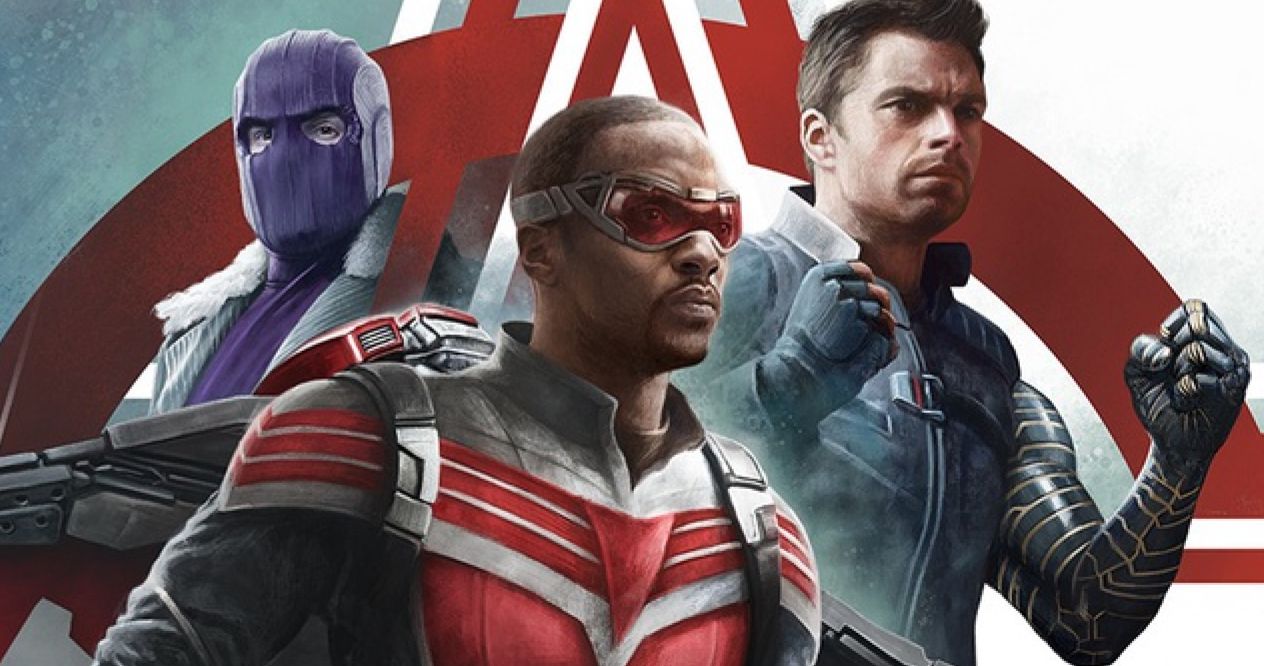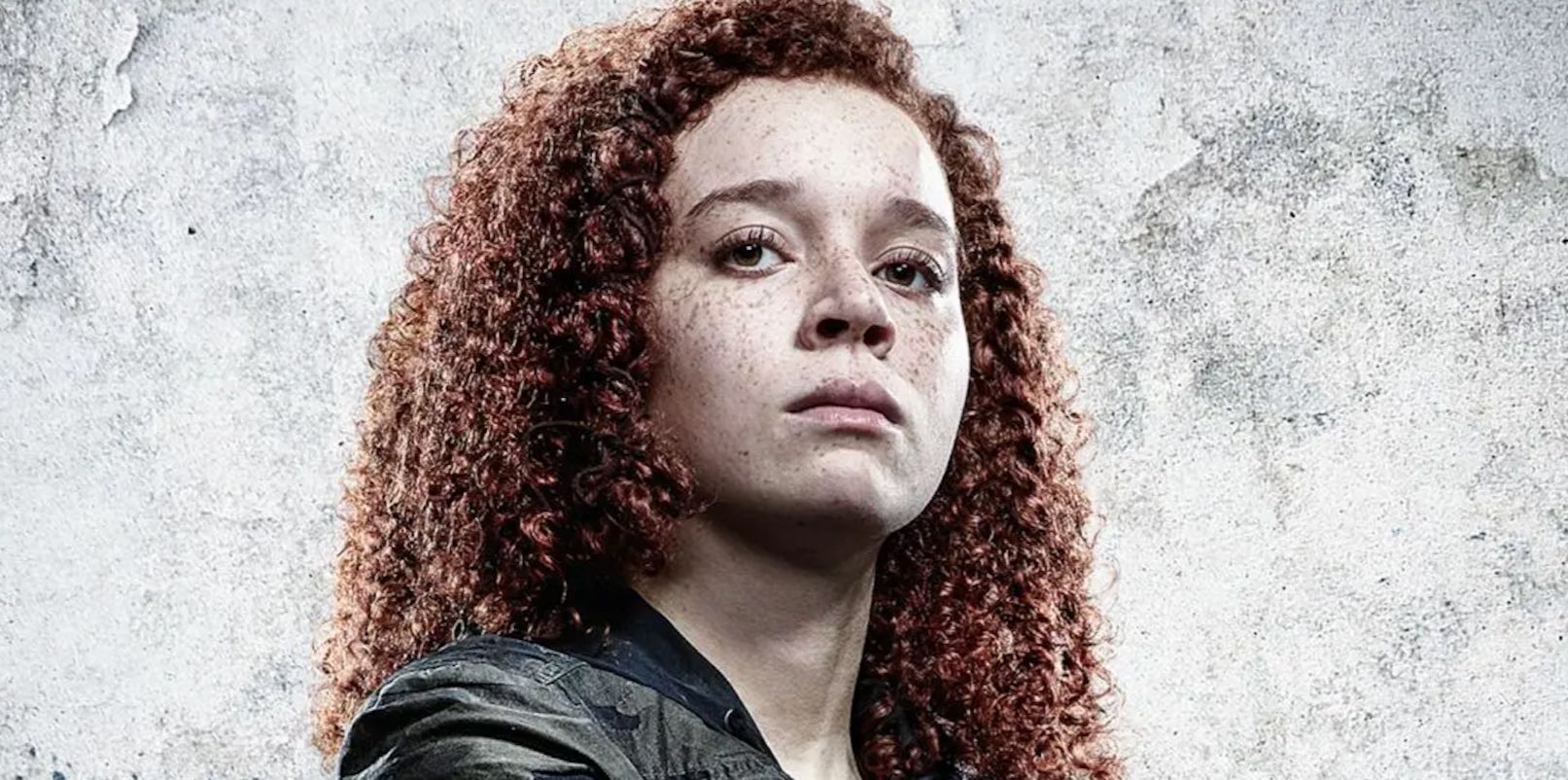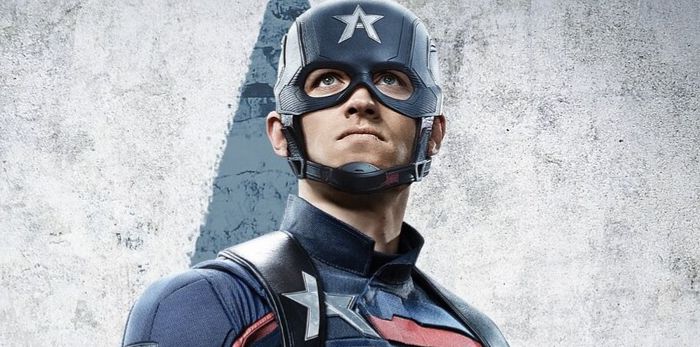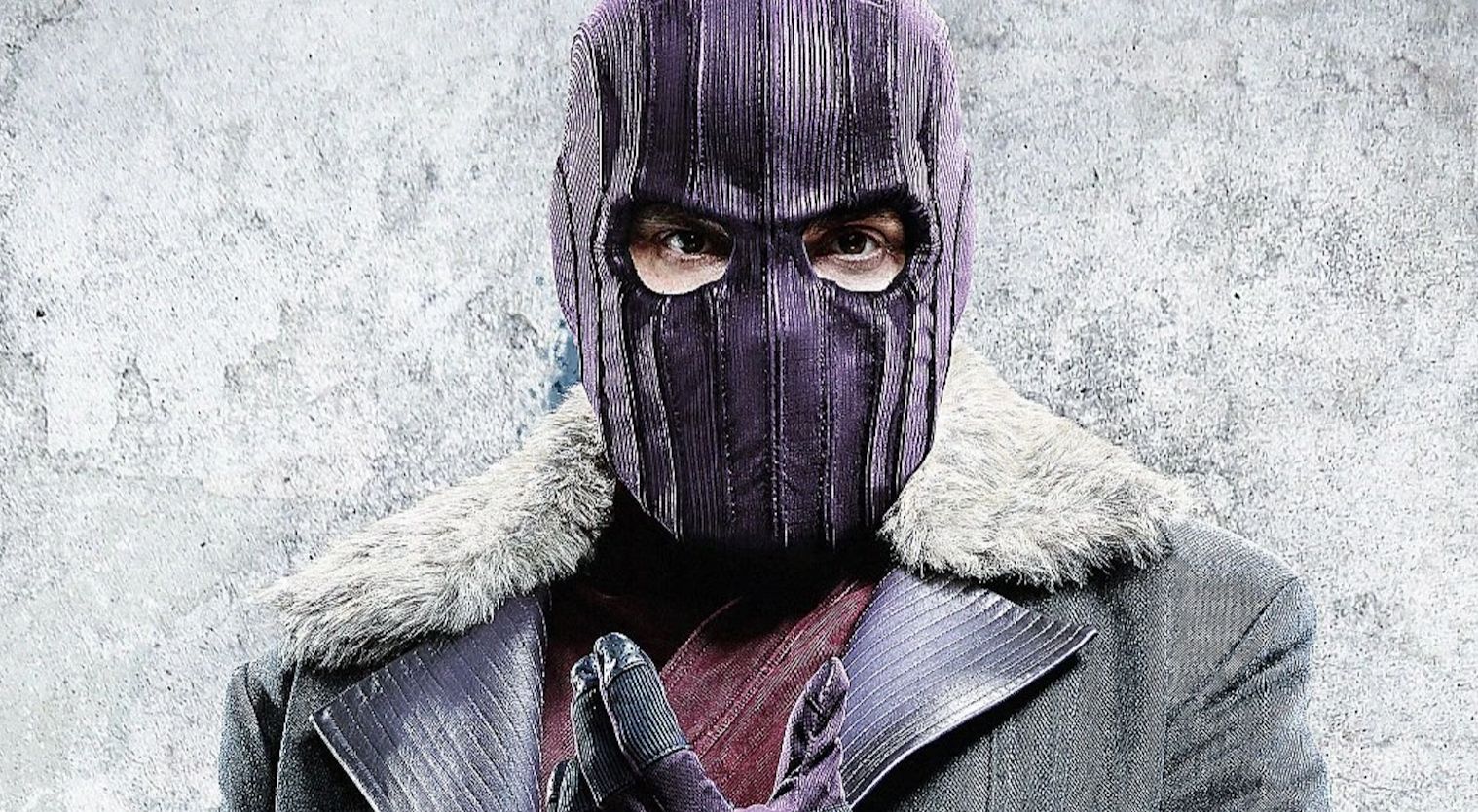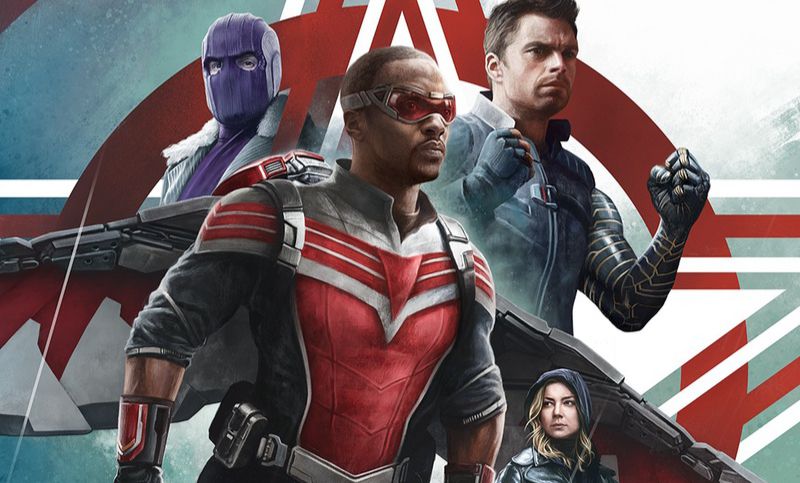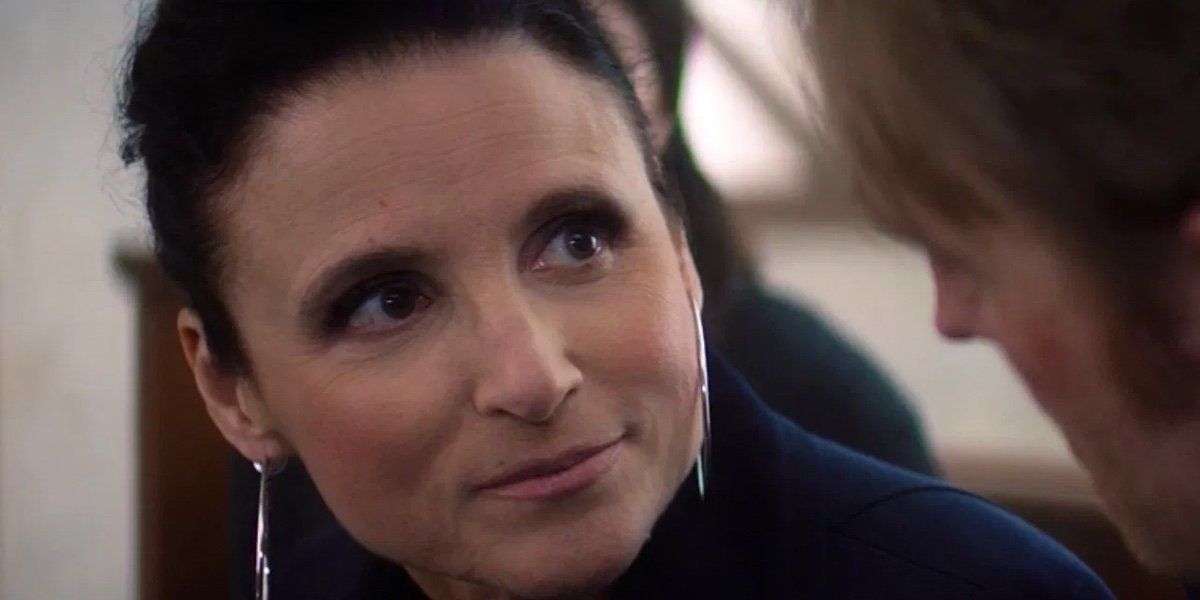When you look deep enough, The Falcon and the Winter Soldier has really got no villains. That's right. Though the miniseries has depicted some serious conflict between the good guys and the bad ones, the show doesn't explicitly depict the bad guys as villains as MCU's previous installments have. In fact, the show subtly changes the understanding of villains as the story takes a deep dive into divided politics, race issues, civil wars, and refugee problems in a subtle but impactful manner.
The show definitely has suggested darker turns of character arcs throughout and has even played along with not one but three contrasting anti-hero characters, hardly any of them could be deemed a villain without understanding them.
Here's an idea behind the depiction of these gray characters, and how the political metaphors used in The Falcon And The Winter Soldier make them the sufferers in the first place.
5 Flag Smashers: The Victims of Collateral Damage
When Thanos blipped half of life from the universe including planet Earth, while there was grief and loss all over, there were some good repercussions of it. Even Steve Rogers admitted how he saw whales in the Hudson River and witnessed water turning fresh. Lack of human interference had allowed nature to blossom and take over, while people left behind were met with ample resources to survive. And people like Flag Smashers were the ones who most benefit from that.
As suggested in the show, the Blip allowed a decrease in political conflicts and negated border restrictions. With less population, people from earlier deprived and underprivileged territories were met with an increased quantity of resources such as water, land, and fuel, while also paving a way for work opportunities. And since border restrictions were removed, they found peace and harmony as wars and conflicts were given up in light of newfound life.
Now, the world is getting back to the previous, "normal" days. While those days will help the returned settle down with their old lives, it will also mean the return of old, unjust struggles for basic necessities for people like the members of Flag Smashers. Now, they are all deemed refugees and the "new world order" wants them to go back to their countries of origin, back to square one from where they rose towards a better life.
Flag Smashers are allegorical to the modern-day refugees who are forced to relocate from their homes caused by civil wars, overseas military intrusions, and lack of aid and resources. It's an interpretation of rising rebellion groups, taking up arms (here, super-soldier serums) to fight through bureaucratic governments and impractical diplomacy that cost them their lives and prosperity. Violence, regardless of the cause, is condemnable of course.
But Flag Smashers fear losing control to the bureaucratic government who weren't concerned about them before, nor are they now. We see how Flag Smashers steal food and medicine, as politically run welfare organizations like GRC fail to help the ones who are at the bottom of this stratified chain. Being super-soldiers gives them an edge to fight corruption with brute force and strength so that the big guns couldn't keep them down.
From what we see in the show, the showrunners and writers understand this connection, and that's the reason that Flag Smashers aren't outright evil. The sequence where Sam tries to convince Karli of stopping her mayhem and his support towards her cause (not the way she acts on her cause) implies that Karli and her group are forced into action by constant neglection of their community and others like them at the hands of "people with agendas'', something even Steve Rogers didn't support.
While Karli as an individual succumbs to her anger and resorts to killing, there are Flag Smashers like Dovich and Nico who believe in greater ideals and principles but are currently too far in their fight to make a turn. Whether Karli and Flag Smashers would turn dark in the final episode or will receive justice even in defeat, is yet to be revealed in the series finale set to stream this Friday on Disney+.
4 John Walker: A Righteous Man Set On A Wrong Path
Wyatt Russell has given an astonishing reiteration of Captain America's character as he gave us how a superhero figure can be portrayed in a dark alternative. John Walker is first introduced as Captain America, an incarnation of Steve Rogers, whose purpose is to serve America (not the world) at his best, while keeping "American" values intact. John, a highly decorated soldier, has his own understanding of serving the nation. Just like a soldier, he is determined to keep his nation safe from international and domestic threats. He has earlier faced enemies in direct combat in overseas conflicts and has used big guns.
Moreover, fighting wars in the army means fighting alongside your brothers in arms. But, as Captain America, John is offered a shield, which he has to carry to continue the legacy of Captain America, with his partner Lemar Hoskins, which still makes them just two against a more powerful and organized enemy group.
Even Rogers had an entire team, first the Howling Commandos, then Avengers, and loyal members of S.H.I.E.L.D whenever a major threat came by. Here is a soldier, who has seen some of the harshest moments anyone ever does. His psychology is deeply affected by defeat in warfare cause it probably came with the loss of his fellow soldiers. And now, he has these shoes to fill, live up to people's expectations, abide by righteousness, and obviously live up to the name, Captain America.
Many interpretations out in the pop-culture coverage have compared how Steve introduced himself as Steve Rogers, while John introduces himself as John Walker, Captain America. Almost all of these comparisons take this as an implication of John's arrogance in being chosen for the mantle. But, what if it's because of the immense pressure he faces to prove himself and be that intimidating superhero figure which leads to his arrogance. After all, being a soldier, accepting defeat is not in his nature.
While John Walker faces a lack of support, he faces unexpected strength from opponents like Flag Smashers and Dora Milaje in one instance. Walker isn't familiar with fighting threats like these. He is a soldier, physically and psychologically capable of "embodying American values" and defeat terrorist threats. But he isn't mentally prepared to face defeat in small combats.
The defeat comes as a humiliation to him, which makes him take the serum, a power he doesn't fully understand. On top of that, losing his friend makes him vengeful (again, a perfect soldier's trait), eventually leading him to publicly murder an opponent in cold blood. It was indeed the heat of the battle. The character's gray turn could've been avoided if he hadn't been betrayed by his own government.
John is made a villain when the government who first entrusted him with the heavy-duty, backstabbed him, stripping him of his military titles and the mantle altogether. He is used as a prop for the world, as a showman for diplomats faking justice for Nico, the man who was brutally murdered by Walker. Just like Steve Rogers was once used as a media prop, punching a fake Hitler to emblem American victory in World War II.
But for Steve, that was a starting point in his service as he went ahead to do a great job as Captain America. Reversing the roles here, it comes as an end-point for Walker, a family man, left without benefits and a career despite keeping his life on the line for the country. This neglect and betrayal eventually would lead him to become the U.S. Agent, who may form an alliance with an evil foe, Valentina Allegra de la Fontaine. Was John entirely wrong? Up to the viewers to decide.
3 Helmut Zemo: A Man Lost In Grief
Zemo hasn't yet turned into the villain the comic books have portrayed him as. This version of the character was grief-stricken at the loss of his family, which led him on a path of vengeance. On that path, he did commit a crime, leading to T'Chaka's murder, something he didn't really wish to. Overburdened with that loss, when he felt that he had taken down the façade of righteousness from people's heroes' faces (the fact that Cap hid his friend's parents' murderer infers the fake heroism).
While being in prison, Zemo finally realizes that superheroes and their powers can breed the corrupt greed for power and control, eventually leading to the glamorization of supremacy. Hence, when given an opportunity, he allies Barnes and Wilson to find out this new breed of superhumans (Flag Smashers) and end them for good.
His obsession with ending the reign of heroes comes from his loss of loved ones. While he lost his family, Avengers were deemed heroes. Avengers was not confronted with the Accords until the accidental blast in Lagos, Nigeria, which forces Wakandan King T'Chaka to advocate for the Accords. And when it came to Sokovia's restoration, the forces from outside came in and tore apart Sokovia, leaving nothing of it except a memorial.
Upon being broken out of prison during the events of The Falcon And The Winter Soldier, Zemo finds a new purpose; to rid the world of the "warped ambition" of the supremacist mentality that comes with power. Once again, he kills (Wilfred Nagel) to stop further production of super-soldier serum, and then breaks all the vials Karli drops (except the one). Him not taking the serum for himself further establish that he is true to his vision towards superhero reigns and control.
Eventually, when Bucky aims a gun at his head, Zemo shows a sense of relaxation, probably thinking of his family he may meet in afterlife. Upon realizing that the gun was empty and that Bucky is having him arrested, he again accepts his fate bidding farewell to Bucky.
Zemo's character development has been a unique one in Marvel Cinematic Universe. His growth as an anti-hero instead of a typical villain has garnered his character fan support, with some even empathizing with his cause. It was good to see Zemo won't die in the franchise and hopefully, the Universe has something great on hold for him.
2 Is Bureaucracy the Real Villain?
The Falcon And The Winter Soldier has depicted the deep rooted cynicism in political agendas. The lack of cooperation and all regimes and their leaders working on self-interests has led to loss of prosperity in people's lives. We have seen how political greed have led to three different anti-bureaucratic personalities in the show, and how how it is further causing destruction and chaos.
These divided political interests sought by corrupt bureaucrats has led the wars and conflicts of the past to rise again, which, in a way, disrespects Avengers' efforts and sacrifice to restore the world to its former state. With people's rights being stripped and lack of resources causing mayhem amongst the less privileged.
These circumstances in the first place led Thanos to commit himself to destroy half of life from the universe. And now, a similar, though less powerful threat has arise in form of Flag Smashers. What if, it cause further trouble for the remaining heroes in the future of MCU?
1 Real Villains that The Falcon And The Winter Soldier did Teased
The show has teased two villainous individuals. One was the big cameo from Julia-Louis Dreyfus, while the other was the name, Power Broker.
Dreyfus portrayed Valentina Allegra de la Fontaine. The character has been depicted in the comics as an ally to Nick Fury, and a prominent figure in Secret Invasion storyline. She is seen recruiting John Walker for a mysterious goal, which definitely does not seem are in good faith. How MCU version of the character would turn out and how it would shape the MCU will be worth a watch.
On the other hand, we are yet to see who Power Broker is and let's hope we will get another cameo in the finale episode. Curtis Jackson, one of the two iterations of Power Broker in the comics, has experimented on several superhero figures with the hell of Dr. Karl Malus. In the show, he is supposed to own and run a powerful criminal organization in Madripoor, and has successfully funded creation of a newly perfect super-soldier serum.
Notably, Power Broker and Karl Malus were responsible for experimenting on Joaquin Torres in the comics, which led him to become the second Falcon in order to save his life. How the character shapes future of Madripoor in the MCU (an island associated with X-Men in comics) shall open possibilities of further expansion of the franchise.
The Falcon And The Winter Soldierhas given MCU a new direction along with progressive development of several characters. How these subplots will lead MCU into the future may clear up in the final episode of the miniseries, set to stream on Disney+ on Friday.

